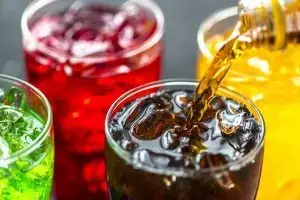- Home
- Medical news & Guidelines
- Anesthesiology
- Cardiology and CTVS
- Critical Care
- Dentistry
- Dermatology
- Diabetes and Endocrinology
- ENT
- Gastroenterology
- Medicine
- Nephrology
- Neurology
- Obstretics-Gynaecology
- Oncology
- Ophthalmology
- Orthopaedics
- Pediatrics-Neonatology
- Psychiatry
- Pulmonology
- Radiology
- Surgery
- Urology
- Laboratory Medicine
- Diet
- Nursing
- Paramedical
- Physiotherapy
- Health news
- Fact Check
- Bone Health Fact Check
- Brain Health Fact Check
- Cancer Related Fact Check
- Child Care Fact Check
- Dental and oral health fact check
- Diabetes and metabolic health fact check
- Diet and Nutrition Fact Check
- Eye and ENT Care Fact Check
- Fitness fact check
- Gut health fact check
- Heart health fact check
- Kidney health fact check
- Medical education fact check
- Men's health fact check
- Respiratory fact check
- Skin and hair care fact check
- Vaccine and Immunization fact check
- Women's health fact check
- AYUSH
- State News
- Andaman and Nicobar Islands
- Andhra Pradesh
- Arunachal Pradesh
- Assam
- Bihar
- Chandigarh
- Chattisgarh
- Dadra and Nagar Haveli
- Daman and Diu
- Delhi
- Goa
- Gujarat
- Haryana
- Himachal Pradesh
- Jammu & Kashmir
- Jharkhand
- Karnataka
- Kerala
- Ladakh
- Lakshadweep
- Madhya Pradesh
- Maharashtra
- Manipur
- Meghalaya
- Mizoram
- Nagaland
- Odisha
- Puducherry
- Punjab
- Rajasthan
- Sikkim
- Tamil Nadu
- Telangana
- Tripura
- Uttar Pradesh
- Uttrakhand
- West Bengal
- Medical Education
- Industry
Drinks with Artificial Sugar May Not Increase Breast Cancer Risk, Claims Study

The consumption of sugary drinks has increased worldwide in the last decades; according to the Global Burden of Disease. A previous study suggests that sugary drinks increase the risk of overall cancer and breast cancer. However, a recent study found that artificial sugary drinks do not raise the risk of breast cancer. The study findings were published in The Journal of Nutrition on June 10, 2021.
Artificially sweetened beverages were initially envisioned as a healthier alternative. However, they are associated with a higher incidence of hypertension, obesity, and type 2 diabetes. Besides, some artificial sweeteners were suggested to increase glucose intolerance by altering the gut microbiota. Whether consumption of sugar-sweetened beverages (SSBs) or artificially sweetened beverages (ASBs) is associated with the risk of breast cancer is of public health interest. Therefore, Dr Andrea Romanos-Nanclares and her team conducted a study to evaluate associations between consumption of SSBs and ASBs and risks of total and subtype-specific breast cancer.
In this present study, researchers evaluated 82,713 women from the Nurses' Health Study (1980 to 2016) and 93,085 women from the Nurses' Health Study II (1991 to 2017). They identified a total of 11,379 breast cancer cases during 4,655,153 person-years of follow-up. They used Cox regression models to test the association between cumulatively averaged intakes of SSBs and ASBs from food frequency questionaries (FFQs) with incident breast cancer cases and subtypes. They further evaluated the associations stratified by menopausal status, physical activity, BMI, and alcohol intake.
Key findings of the study were:
- Upon analysis, the researchers found that the consumption of SSBs or ASBs was not associated with total breast cancer risk: pooled HRs comparing extreme categories (≥1/day compared with <1/month) were 1.03 and 0.96.
- However, they observed a suggestive interaction by BMI using pooled data, where a modestly higher risk of breast cancer with each serving per day increment of SSBs was found in lean women (HR, 1.06) but not among overweight or obese women (HR, 1.00).
- Moreover, in the pooled, fully adjusted analysis, compared to infrequent consumers (<1/month), they found that those who consumed ≥1 serving of ASBs per day had a lower risk of luminal A breast tumours (HR, 0.90).
The authors concluded, "Although no significant associations were observed overall, consumption of SSBs was associated with a slightly higher risk of breast cancer among lean women. This finding could have occurred by chance and needs confirmation. Our findings also suggest no substantial increase in the risk of breast cancer with consumption of ASBs."
For further information:
Dr Kartikeya Kohli is an Internal Medicine Consultant at Sitaram Bhartia Hospital in Delhi with super speciality training in Nephrology. He has worked with various eminent hospitals like Indraprastha Apollo Hospital, Sir Gangaram Hospital. He holds an MBBS from Kasturba Medical College Manipal, DNB Internal Medicine, Post Graduate Diploma in Clinical Research and Business Development, Fellow DNB Nephrology, MRCP and ECFMG Certification. He has been closely associated with India Medical Association South Delhi Branch and Delhi Medical Association and has been organising continuing medical education programs on their behalf from time to time. Further he has been contributing medical articles for their newsletters as well. He is also associated with electronic media and TV for conduction and presentation of health programs. He has been associated with Medical Dialogues for last 3 years and contributing articles on regular basis.
Dr Kamal Kant Kohli-MBBS, DTCD- a chest specialist with more than 30 years of practice and a flair for writing clinical articles, Dr Kamal Kant Kohli joined Medical Dialogues as a Chief Editor of Medical News. Besides writing articles, as an editor, he proofreads and verifies all the medical content published on Medical Dialogues including those coming from journals, studies,medical conferences,guidelines etc. Email: drkohli@medicaldialogues.in. Contact no. 011-43720751


